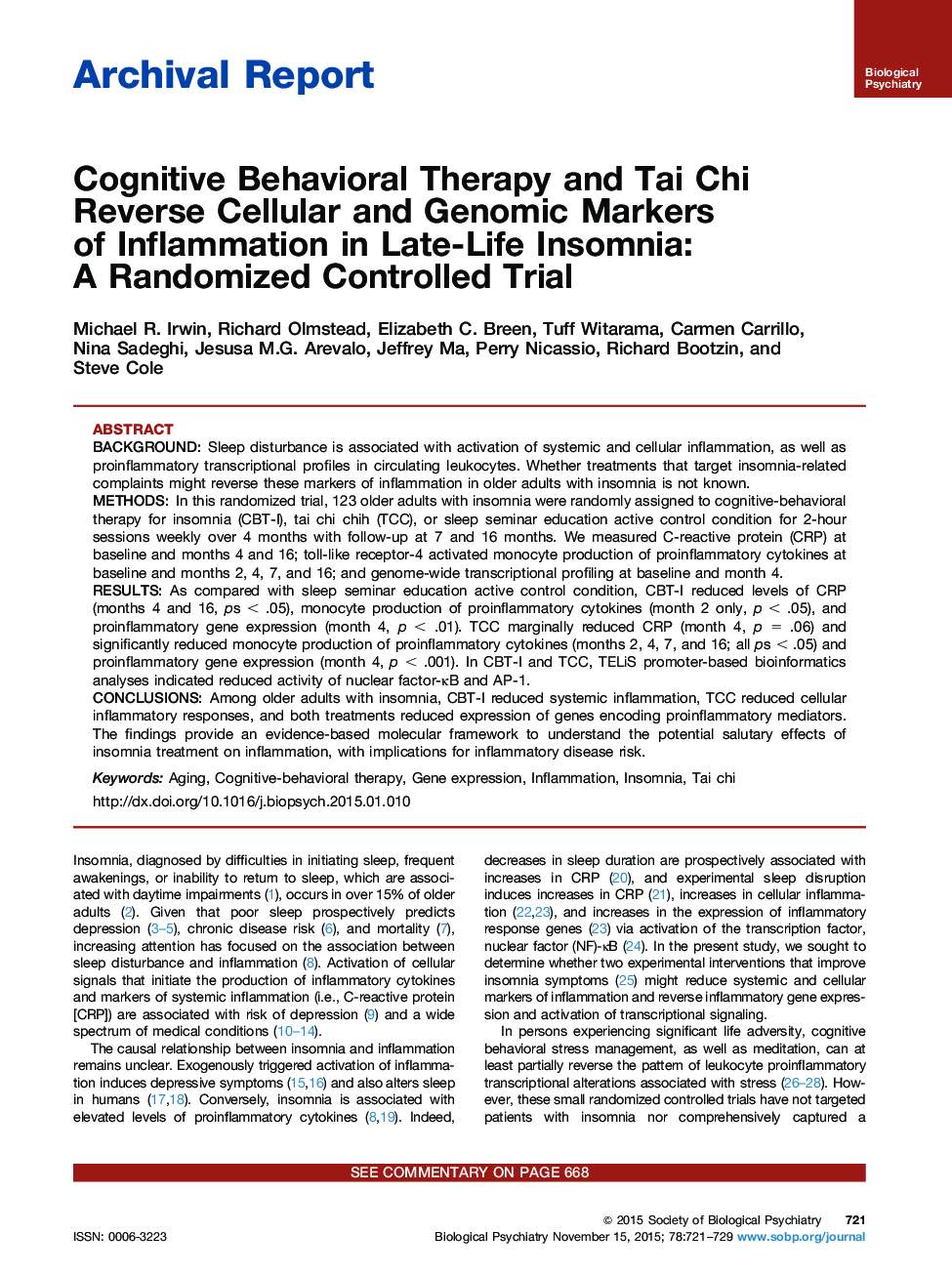| کد مقاله | کد نشریه | سال انتشار | مقاله انگلیسی | نسخه تمام متن |
|---|---|---|---|---|
| 4177125 | 1276391 | 2015 | 9 صفحه PDF | دانلود رایگان |
BackgroundSleep disturbance is associated with activation of systemic and cellular inflammation, as well as proinflammatory transcriptional profiles in circulating leukocytes. Whether treatments that target insomnia-related complaints might reverse these markers of inflammation in older adults with insomnia is not known.MethodsIn this randomized trial, 123 older adults with insomnia were randomly assigned to cognitive-behavioral therapy for insomnia (CBT-I), tai chi chih (TCC), or sleep seminar education active control condition for 2-hour sessions weekly over 4 months with follow-up at 7 and 16 months. We measured C-reactive protein (CRP) at baseline and months 4 and 16; toll-like receptor-4 activated monocyte production of proinflammatory cytokines at baseline and months 2, 4, 7, and 16; and genome-wide transcriptional profiling at baseline and month 4.ResultsAs compared with sleep seminar education active control condition, CBT-I reduced levels of CRP (months 4 and 16, ps < .05), monocyte production of proinflammatory cytokines (month 2 only, p < .05), and proinflammatory gene expression (month 4, p < .01). TCC marginally reduced CRP (month 4, p = .06) and significantly reduced monocyte production of proinflammatory cytokines (months 2, 4, 7, and 16; all ps < .05) and proinflammatory gene expression (month 4, p < .001). In CBT-I and TCC, TELiS promoter-based bioinformatics analyses indicated reduced activity of nuclear factor-κB and AP-1.ConclusionsAmong older adults with insomnia, CBT-I reduced systemic inflammation, TCC reduced cellular inflammatory responses, and both treatments reduced expression of genes encoding proinflammatory mediators. The findings provide an evidence-based molecular framework to understand the potential salutary effects of insomnia treatment on inflammation, with implications for inflammatory disease risk.
Journal: Biological Psychiatry - Volume 78, Issue 10, 15 November 2015, Pages 721–729
